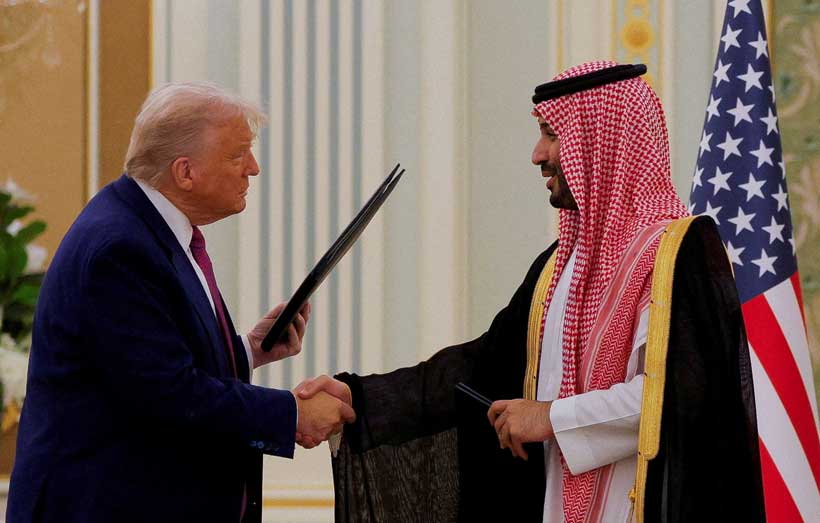U. S. President Donald Trump has been optimistic about Saudi Arabia potentially normalizing relations with Israel, but this is unlikely to happen during Crown Prince Mohammed bin Salman’s visit to the White House. Establishing diplomatic ties could change the political landscape in the Middle East and enhance U. S. influence. Trump expressed hopes that Saudi Arabia would soon join other Muslim countries that signed the Abraham Accords in 2020, but Saudi Arabia has indicated it will only proceed with normalization if there is a clear agreement on Palestinian statehood.
To prevent diplomatic missteps, Saudi Arabia wants to ensure their positions align with the U. S. before making any public statements, with the objective of avoiding confusion after their discussions on November 18. Experts suggest that MbS will seek stronger U. S. support for the establishment of a Palestinian state during his visit. This will be his first trip to Washington since the controversial killing of journalist Jamal Khashoggi in 2018, which had significant global backlash, although MbS has denied direct involvement.
Countries like the United Arab Emirates, Bahrain, and Morocco have already normalized ties with Israel under the Abraham Accords, and Trump expects more nations to follow suit shortly. However, the agreements made by these nations did not address Palestinian statehood. Sources have relayed that Saudi Arabia is insisting any recognition of Israel should be part of a broader plan rather than a simple extension of existing agreements.
For Saudi Arabia, recognizing Israel is a sensitive issue linked to national security and resolving longstanding regional conflicts. There is a significant level of mistrust towards Israel among Arab publics, especially following Israel’s military actions in Gaza against Hamas, which escalated after the Hamas-led attack on October 7, 2023. Saudi Foreign Ministry official Manal Radwan has mentioned the need for a clear and timely withdrawal of Israeli forces from Gaza and other steps to facilitate a Palestinian state—prerequisites for further regional integration.
With Israeli Prime Minister Benjamin Netanyahu firmly against Palestinian statehood, Saudi Arabia does not see any prospect of meeting Trump’s request for normalization. Progress hinges on concessions that the U. S. and Israel are unwilling to make at this time. As a result, Saudi officials want to focus discussions with Trump on defense cooperation and investment, wary that talks about normalizing ties with Israel could overshadow other important topics.
A significant defense agreement is expected to be finalized during this visit, outlining U. S. military support for Saudi Arabia, which is vital for the biggest oil exporter. However, this agreement has been scaled back from a more comprehensive one that Saudi Arabia initially sought in exchange for normalizing relations with Israel. The deal, modelled after an existing agreement with Qatar, will increase cooperation in advanced technology and defense, but it will not guarantee the same level of commitment that a full treaty would.
Saudi Arabia is looking for assurances that a future U. S. administration could elevate this agreement to a more binding treaty, which would provide stability that a non-binding pact lacks. The current negotiations are complex, influenced by recent developments in Gaza, aiming to connect defense agreements and normalization while addressing Saudi security needs independently.
While the idea of a NATO-style defense pact seems far off, the threat from Iran, which previously stimulated Riyadh’s push for U. S. guarantees, has weakened due to Israeli actions. This diminishes the urgency for a treaty that would need two-thirds congressional approval, particularly without progress toward normalization with Israel. As part of the current agreement, there would be limitations on Saudi Arabia’s expanding ties with China and enhanced military collaboration with the U. S., designed to expedite arms sales and avoid past delays.
With information from Reuters

